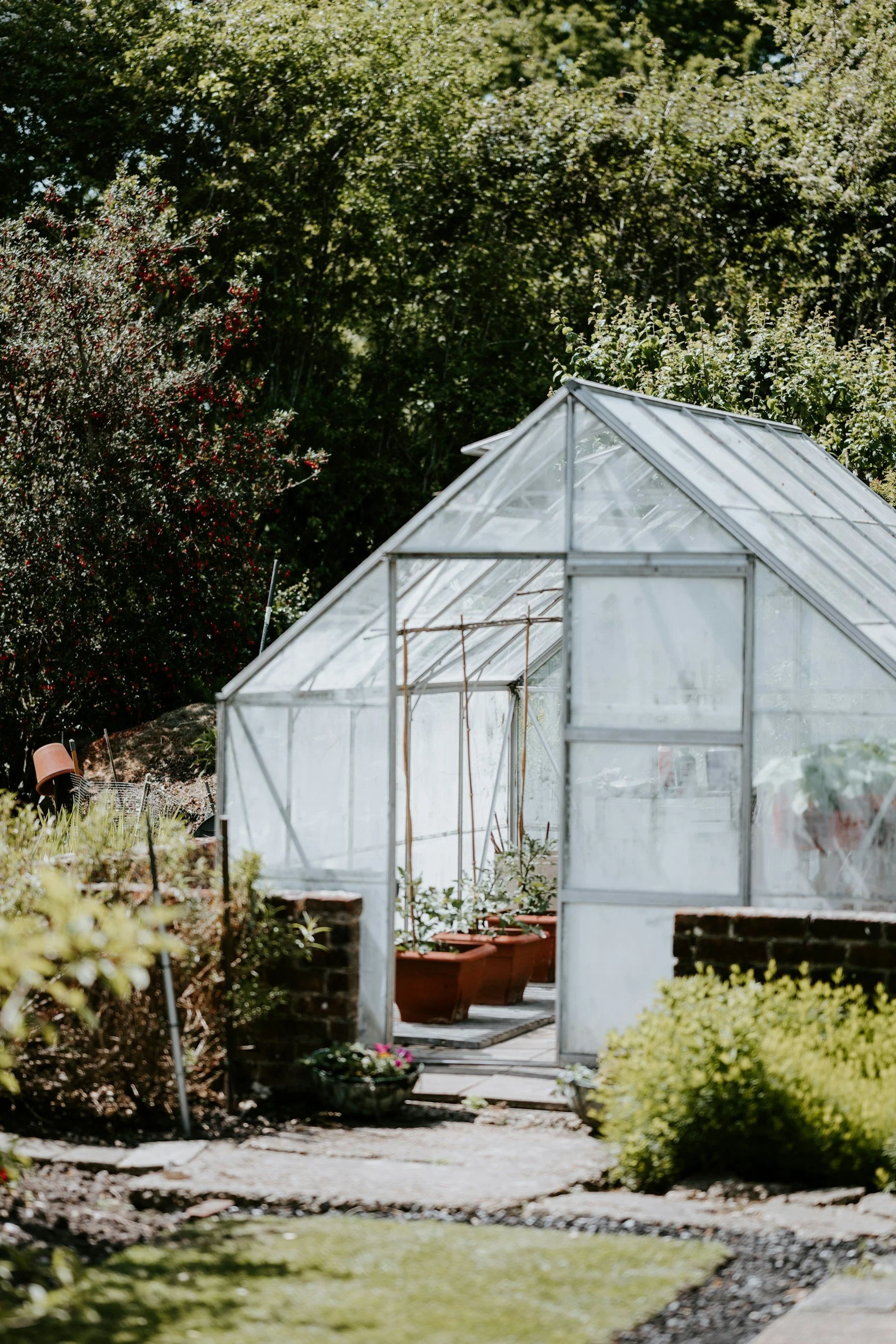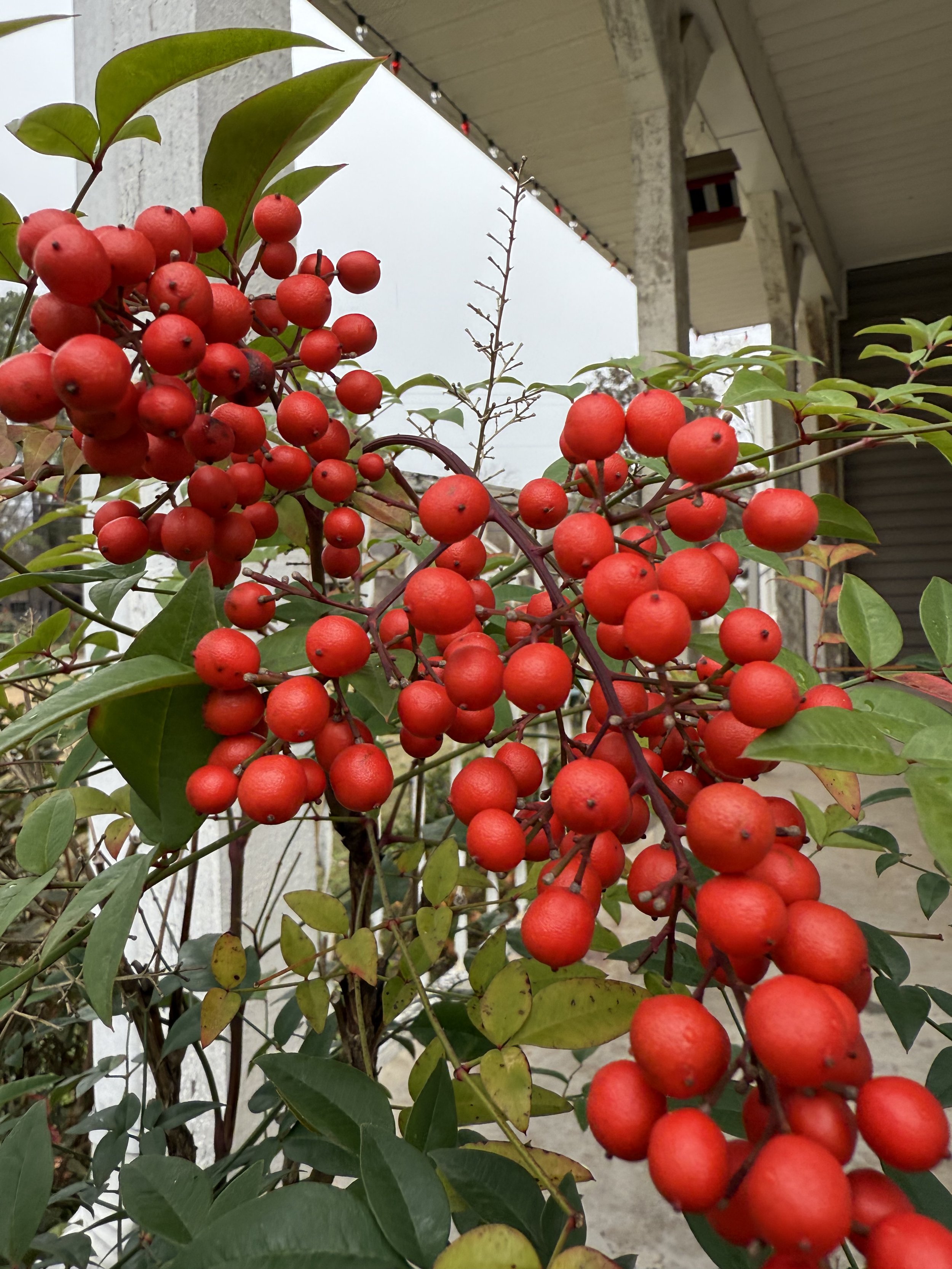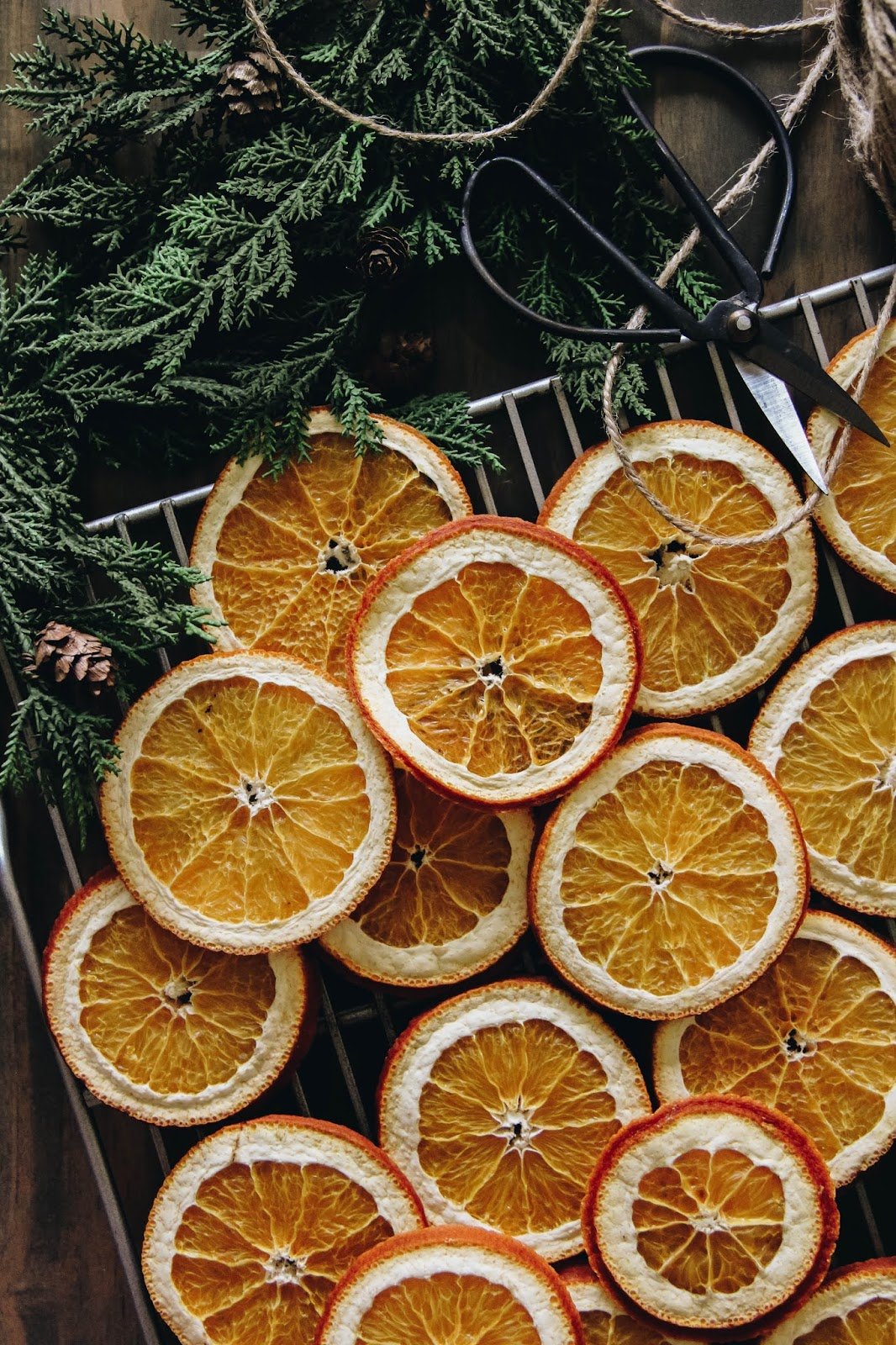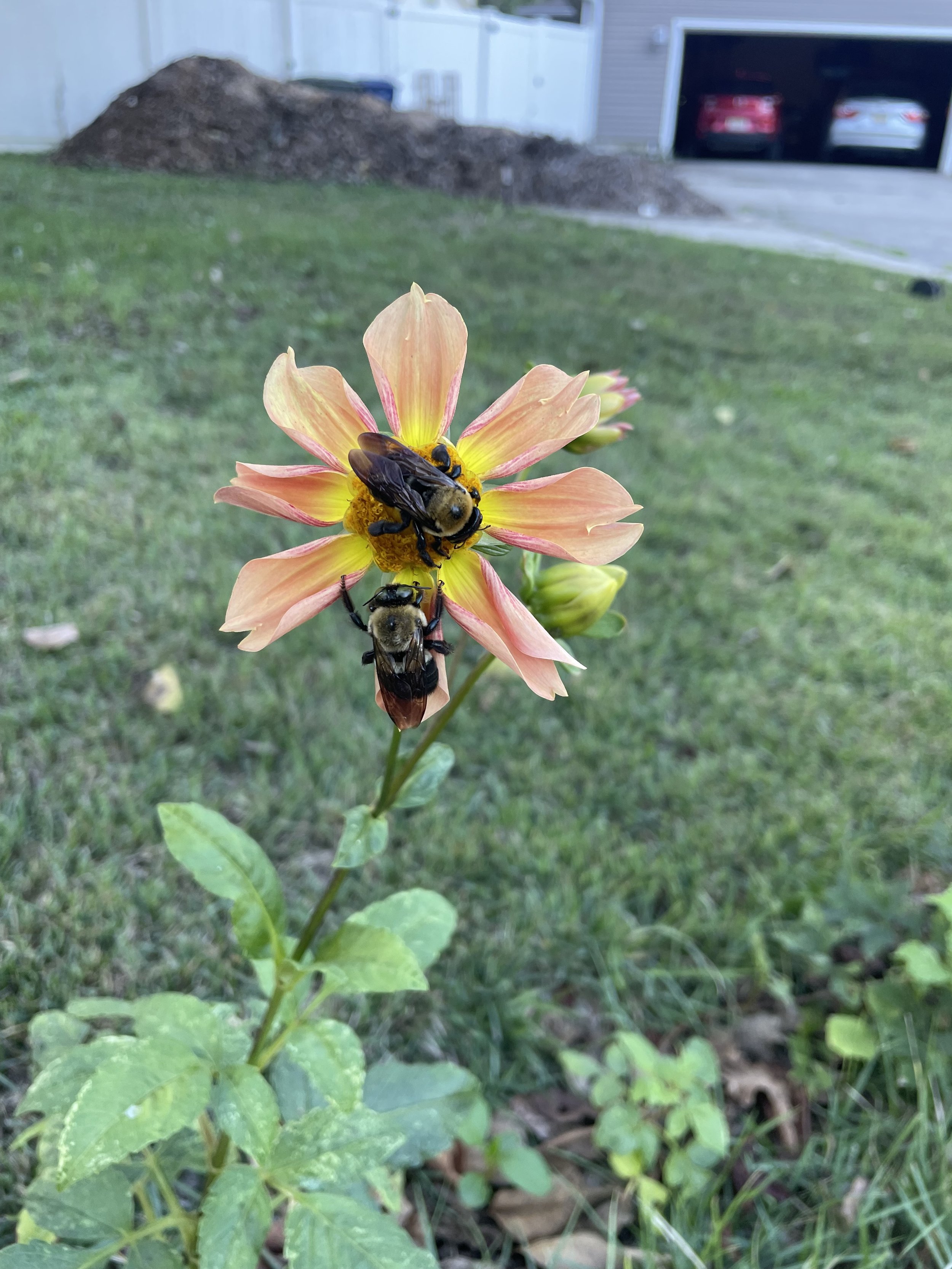
Designing with Rain in Mind
Managing rainwater is one of the smartest (and most beautiful) ways to make your yard more sustainable. In this blog post, we explore how to design with rain in mind by using rain gardens, swales, and native plants that thrive in wet conditions. Learn how to slow, capture, and filter stormwater naturally while creating a thriving, low-maintenance landscape that supports local ecosystems.

Prairie Up - ReWilding Our Landscapes
Benjamin Vogt’s Prairie Up isn’t just about garden design—it’s about rethinking our relationship with the land. Instead of rigid, high-maintenance landscapes, Vogt encourages us to embrace the layered complexity of prairies, where biodiversity flourishes, soil health improves, and wildlife finds sanctuary. His philosophy deeply resonates with me as both a landscape designer and a gardener.
At Restoring Roots, I take these principles to heart, helping homeowners move beyond traditional lawns toward dynamic, ecologically rich landscapes. By prioritizing native plants and designing with nature, not against it, I create spaces that thrive with minimal maintenance while supporting pollinators, birds, and beneficial insects. If you’re ready to rewild your yard, Prairie Up is a must-read—and I’d love to help bring that vision to life.

Building a Greenhouse - A Gardener’s Sanctuary
Thinking about building a greenhouse? While they offer year-round growing potential and a controlled environment, greenhouses aren’t for everyone. They require time, space, and maintenance—making them a better fit for serious gardeners rather than casual hobbyists. But for those who dream of fresh produce in winter or a cozy plant-filled retreat, a greenhouse can be a game-changer. In this post, I break down the benefits, challenges, and who truly benefits from a greenhouse—plus, I share how I’m transforming mine into a personal sanctuary. If you’re considering a greenhouse but aren’t sure where to start, let’s chat!

Planting, Planning, & Sustainable Solutions for Early Spring Gardening
As winter fades and the first signs of spring appear, gardeners everywhere feel the pull of the season ahead. Buds begin to swell, birdsong fills the air, and the soil starts to awaken—reminding us that now is the perfect time to get growing. Early spring is an ideal moment to plant trees and shrubs, giving their roots time to establish before summer’s heat. It’s also a great time to plan, gather seeds, and explore budget-friendly, sustainable ways to start your garden. Whether you have a sprawling yard or just a sunny windowsill, gardening is for everyone—no fancy tools or expensive setups required. Ready to dig in? Let’s make this growing season your best yet!

February: The Perfect Time to Plan Your Garden for a Flourishing Year
February might still feel like winter, but it’s actually the perfect time to start planning your garden for the year ahead. From ordering seeds and starting seedlings indoors to mapping out plug purchases and taking advantage of the rainy season for tree and shrub planting, a little preparation now can set you up for success. Plus, if you’ve been putting off planting spring bulbs, this is your last chance! Thoughtful planning in February ensures a thriving, beautiful, and low-maintenance landscape for months to come. Ready to get started? Let’s dive into why this month is a gardener’s best-kept secret!

Creating Resilient Landscapes by Embracing Sustainability and Regeneration
As climate patterns grow increasingly unpredictable, designing landscapes that do more than just endure is essential. Resilient landscapes go beyond sustainability, actively contributing to the environment’s recovery while adapting to challenges like droughts, floods, or extreme weather. By embracing regenerative practices—such as diverse plantings, water management strategies, and healthy soil stewardship—we can create spaces that thrive in the face of change. Whether you're a homeowner transforming your yard or a business looking to reduce environmental impact, small steps like planting native species or installing rain gardens make a big difference. Let’s rethink landscaping as a way to restore and regenerate our shared ecosystems. 🌱
Ready to create a landscape that’s beautiful, functional, and future-ready? Learn more about how we can help at RestoringRoots.

A Step-by-Step Guide to Analyzing a Landscape for Sustainable Design
Creating a sustainable and functional landscape design begins with a thorough understanding of the environment. In this blog, I share the essential steps I take to analyze a property, from tracking sunlight patterns and evaluating soil health to identifying rainwater harvesting opportunities and microclimates. Learn how a detailed site analysis ensures each design is resilient, tailored to your needs, and supports the natural ecosystem. Whether you’re reimagining your yard or starting fresh, these insights will guide you toward a thoughtful and sustainable landscape.

Embracing Winter in Sustainable Landscape Design
Winter isn’t just a time to wait for spring—it’s a season full of opportunity in sustainable landscape design. From mulching with fall leaves and pruning dormant plants to planning next year’s garden, winter offers the perfect chance to nurture your yard and support biodiversity. Even in the colder months, your landscape can shine with the beauty of evergreens, ornamental grasses, and frost-kissed branches. Embrace the season, and prepare your outdoor space for a thriving, sustainable future!

The Art of Crafting a Landscape Design Proposal
Designing a landscape isn’t just about plants and pathways—it’s about crafting a space that reflects your personality and enhances the beauty of your home. In this blog post, I break down the step-by-step process of creating a custom landscape design proposal, from gathering inspiration with a questionnaire to fine-tuning the final plan based on your feedback. Discover how collaboration and creativity come together to bring your dream outdoor space to life!

Designing with Permaculture
Permaculture is a powerful way to design landscapes that work in harmony with nature, but starting can feel overwhelming. The good news? You don’t need acres of land or advanced knowledge to make an impact. Whether you’re growing herbs on a balcony, harvesting rainwater in your backyard, or planting native species to support pollinators, every small step adds up.
At its core, permaculture is about progress, not perfection. It’s about creating systems that regenerate the earth, reduce waste, and give back more than they take. In this blog, we’ll explore the principles of permaculture, how they tie into sustainable landscaping, and how you can start small—even in the tiniest of spaces.
I’ll also share how I incorporate these principles into my home and designs, helping others create landscapes that are beautiful, functional, and restorative. Ready to dig in? Let’s grow something amazing together.

Garden-Inspired Gift Ideas and Hosting Tips for the Holidays
As the holiday season approaches, there’s nothing more meaningful than gifting sustainably—and what better source of inspiration than your own garden? From dried citrus garlands and seed packets to homemade vanilla extract and upcycled thrift finds, discover creative ways to give thoughtful, eco-friendly gifts that celebrate nature and the joy of the season. Let your garden's bounty and a few homemade touches inspire your holiday gifts this year, adding beauty, warmth, and a personal touch to your festivities.

Why Landscape Fabric May Do More Harm Than Good and What to Use Instead
Landscape fabric might seem like an easy solution for keeping weeds at bay, but over time, it often creates more problems than it solves. While it may initially act as a weed barrier, the fabric soon becomes a breeding ground for weed roots and seeds, making weeds even harder to control. What’s more, most landscape fabrics don’t break down naturally, releasing harmful microplastics and chemicals into your soil and surrounding plants.
Instead, consider eco-friendly options like dense planting, organic mulch, and natural weed barriers like cardboard. These methods not only suppress weeds but enrich the soil, promote biodiversity, and support a healthy garden ecosystem. Ready to create a lush, sustainable landscape that works with nature? At Restoring Roots, we specialize in eco-friendly garden designs that thrive with minimal upkeep. Reach out, and let’s make your garden vision a reality!

Design Ideas for Small Yards
Small yards don’t have to limit your landscaping potential. By incorporating native plants with their deep, resilient root systems, you can create a beautiful, low-maintenance space that supports local ecosystems. From vertical gardens to multi-functional plants, every inch of your yard can serve a purpose. Whether you're looking to attract pollinators, grow your own food, or simply enjoy a peaceful retreat, native plants are the key to sustainable design in even the smallest spaces.

Small Actions, Large Impacts in Urban Spaces
Urban green spaces do more than beautify our cities—they improve air quality, combat heat, support biodiversity, and even build stronger communities. Whether you're planting native species in your yard or helping turn vacant lots into community gardens, your small actions can lead to lasting, positive change. Discover easy ways to make a difference in your neighborhood and create a healthier, more sustainable urban environment.

What is a Sustainable Landscape?
Discover how sustainable landscaping fosters resilience and strengthens communities by creating eco-friendly spaces that thrive with minimal impact.

You Don’t Need a Green Thumb to Be a Great Gardener
Gardening is a lot like learning to ride a bike—you’ll fall a few times, but eventually, you find your balance. I’ve had plenty of mishaps myself, from overwatering to accidentally planting things in the wrong spot. But every failure taught me something valuable. If you’re worried about not having a green thumb, don’t be! Gardening is all about practice, learning, and patience. If you’re ready to start your gardening journey, I can help set you up for success.

Save Time and Money with Low-Maintenance Perennials and Native Plants
Tired of spending countless hours mowing, watering, and maintaining your lawn? By incorporating perennials and native plants into your landscape, you can drastically cut down on yard work, save money, and create a beautiful, thriving ecosystem right in your own backyard. In this blog, we’ll explore how native plants not only reduce maintenance but also add visual appeal and attract local wildlife, helping you create a yard that’s both eco-friendly and low-effort. Discover how to transform your outdoor space with less work and more rewards!

The Ultimate Guide to Composting: From Greens and Browns to Worms and Bins
Composting is an easy and effective way to reduce waste and create rich, nutrient-packed soil for your garden. Whether you're new to composting or looking to refine your process, our latest blog covers everything you need to know—what to compost, different methods (like in-bed and worm composting), and how to get started this fall. Plus, with a few helpful tips, you’ll have usable compost just in time for spring planting!
Ready to kick-start your composting journey? Check out the full post to learn more and see how we can help you create a sustainable, eco-friendly landscape!

Fall Gardening Tips: Simple Steps to Prepare Your Garden for a Beautiful Spring
As fall approaches, don’t let your garden go to sleep just yet! In my latest blog post, I’m sharing easy, practical tips to set your garden up for a vibrant spring. From leaf mulching and seed saving to pruning and planting bulbs, these simple tasks can help your garden thrive when warmer weather returns. Curious how to make your yard more sustainable with less effort? Check out the full post for ideas and inspiration!

The Essential Role of Native Plants in Suburban Landscape Design: Rebuilding Biodiversity, One Yard at a Time
Discover the transformative power of native plants in your suburban landscape. Learn how incorporating keystone species can promote wildlife, restore biodiversity, and create a thriving ecosystem right in your backyard. Plus, find out how expert landscape design can help you seamlessly integrate native plants into a sustainable, beautiful garden that supports local pollinators and wildlife.

